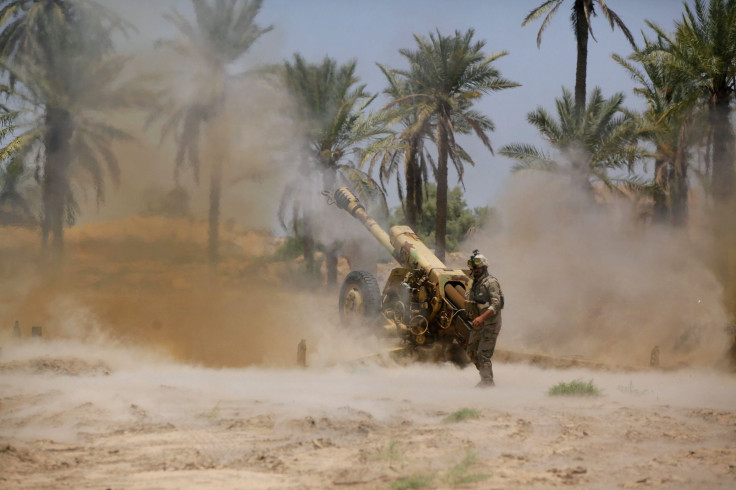ISIS Money: Islamic State Is Strapped For Cash, Can't Pay Fighters

The Islamic State group was once known as a terrorist organization made wealthy from smuggling oil from oil fields, taxing the people it controlled and extorting money from local populations.
But now, ISIS has begun to face a different reality: After being forced to retreat from northern Iraq, where they held oil fields, the group has become nearly bankrupt and is struggling to pay its fighters, said Hoshyar Zebari, a former Iraqi finance minister.
"They were taxing every business — they were taxing every shop, every pharmacy, every activity — not to mention the money they stole from the Iraqi banks,” Zebari said. "They were a very, very rich organization. Now, I think they are on the retreat and they are broke.”
Zebari estimated that ISIS used to bring in $3 million to $5 million per day. The U.S. Treasury gauged that before October 2015, the group brought in up to $500 million from its oil and gas operations alone.
The shift began in 2015, after military campaigns from the U.S. began to force ISIS to retreat from territories — including northern Iraq, where the oil fields were located. Earlier this year, U.S. and Iraqi forces also drove ISIS out of the eastern half of Mosul, one of Iraq’s largest cities and ISIS’ de facto capital. Iraq’s prime minister spoke optimistically Sunday, predicting that ISIS would be gone from Iraq within weeks.
“We are defeating them militarily,” Iraqi Prime Minister Haider al-Abadi said on Fox News. “As a terrorist organization … they will try. So that's where we need the efforts of others. Flush them out of Syria and other places.”
ISIS has not been retreating quietly, though. The group used scorched-earth tactics even as they were run out, setting oil fields and well heads on fire. Black smoke from the Qayyarah oil field could be seen above the flames for over four months.
© Copyright IBTimes 2024. All rights reserved.






















